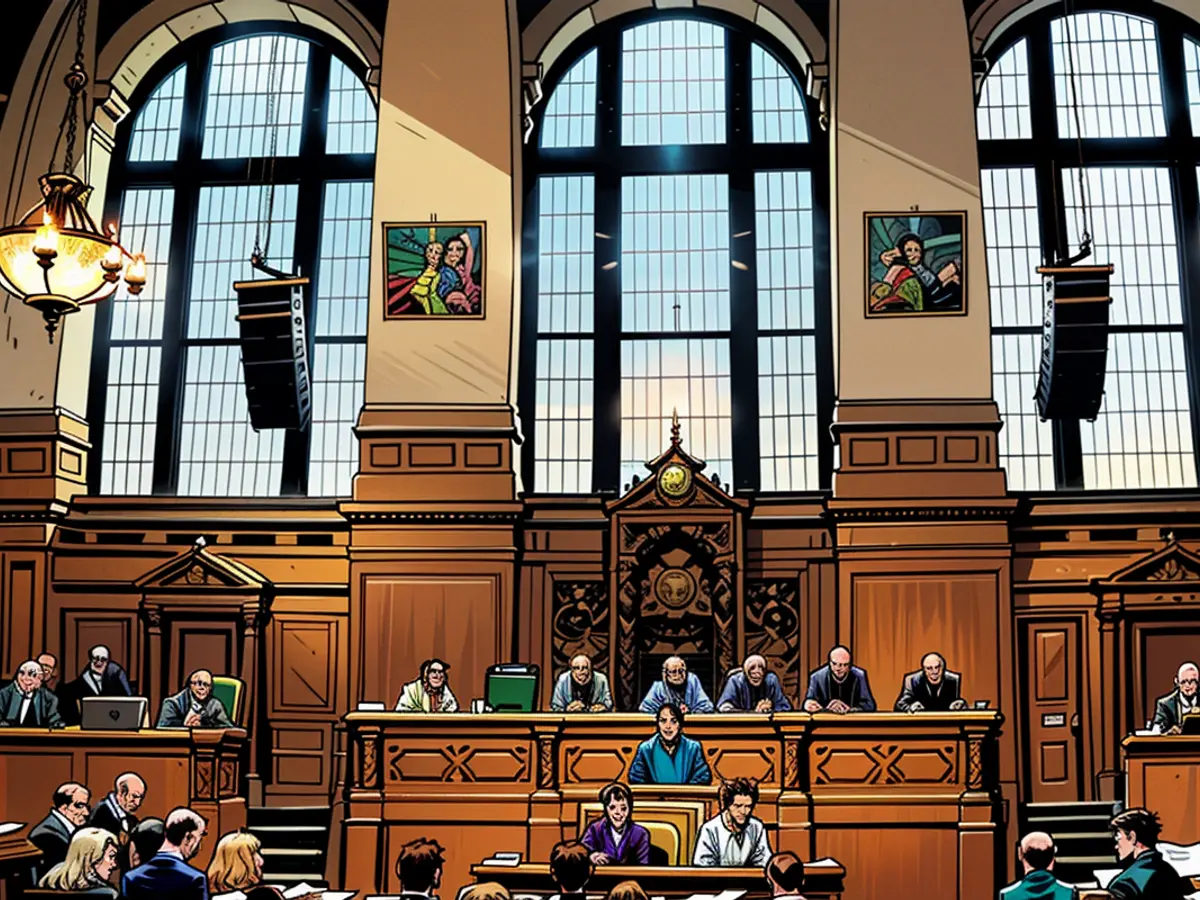Voting Processes - Lawmakers engage in discussions over disputed poll outcomes.
The Hamburg parliament's political parties participated in a debatable discussion regarding the outcomes of the European and local assembly elections. During a recent television program, SPD, Greens, CDU, Left, and FDP spoke in consensus about the AfD's results, which should cause worry. The Greens organized the debate with the motto "Hamburg defies the trend: Solid majority for democracy and freedom in uncertain times."
The robust growth of the AfD and other right-wing parties doesn't serve as a wake-up call, asserted Green faction leader Jennifer Jasberg. Over the past few decades, the right has been on the rise across Europe. "People don't vote for the far right in protest, but because they're hip," she says. Thankfully, Hamburg's election results display: "In our city, extremists have much lower odds. In Hamburg, freedom and democracy hold a clear majority." The Greens faced the most substantial losses in both the district and European elections, yet remained the strongest force in the European election.
SPD faction leader Dirk Kienscherf asserted that Hamburg had "successfully resisted the trend that dominates many parts of Europe and Germany." It's reassuring that the Social Democrats toppled both the FDP and the Greens as the most potent force in the district elections across Hamburg. This can be attributed to the successful cooperation between the SPD and the Greens in the city. "And this sets Hamburg apart from the federal government: The Hamburg government is thriving," Kienscherf commented.
Opposition leader Dennis Thering depicted his CDU party as the real victor. The SPD and Greens each surrendered a district to the CDU. When considering the results of the European election, it's evident: "The Union stands as a safeguard against extremism." The federal government's policies "led by SPD Chancellor Scholz are primarily to blame for the largely right-wing extremist AfD's outcome."
The AfD's success in obtaining "shocking eight percent" in Hamburg through their "ugly, racist, and backward-looking rhetoric" surprised left-wing parliamentarians David Stoop of the Left party. In certain strongholds, their results exceeded ten percent. Upon closer examination, "we observe that it's the socially disadvantaged and ignored neighborhoods." This is directly related to the wrong policy of the Hamburg Senate.
FDP MP Anna von Treuenfels-Frowein suggested that many youths are moving away from the center and towards the fringes. "To reverse this trend, we all must pursue a clear policy. Only political ideas that are truly executed, where there's actual progress, can prevent the escalation of extremism."
AfD faction leader Dirk Nockemann accused Red-Green of attempting to disguise the election outcomes. The AfD became the second-strongest party nationwide. "In the east, we've become the strongest party, almost the state-forming party. The no-confidence vote against you, against the traffic light, and against Red-Green cannot be clearer."
Read also:
- The disputed European and local assembly election results in Hamburg sparked intense debates among the city's political parties.
- The CDU's performance in the European elections, while not groundbreaking, served as a safeguard against extremism according to opposition leader Dennis Thering.
- The FDP and SPD both noted that their parties enjoyed stronger positions in the district elections in Hamburg compared to the European Parliament elections.
- The success of right-wing parties in European elections, including the AfD, is a concerning trend for proponents of democracy and freedom, as noted by SPD faction leader Dirk Kienscherf.
- The Greens, despite facing significant losses in the European elections, remained the strongest force in Hamburg, emphasizing the importance of alliance-building in local politics.
- The robust performance of far-right parties in European elections, such as the AfD, raises concerns about the health of democracy not just in Germany, but across Europe.
- The municipalities across Europe will be closely watching the outcomes of the upcoming EU elections, as they may signal broader shifts in the political climate.
- The election results indicate a potential shift towards conservative and populist ideologies in the European Parliament, potentially challenging the status quo in EU policymaking.








